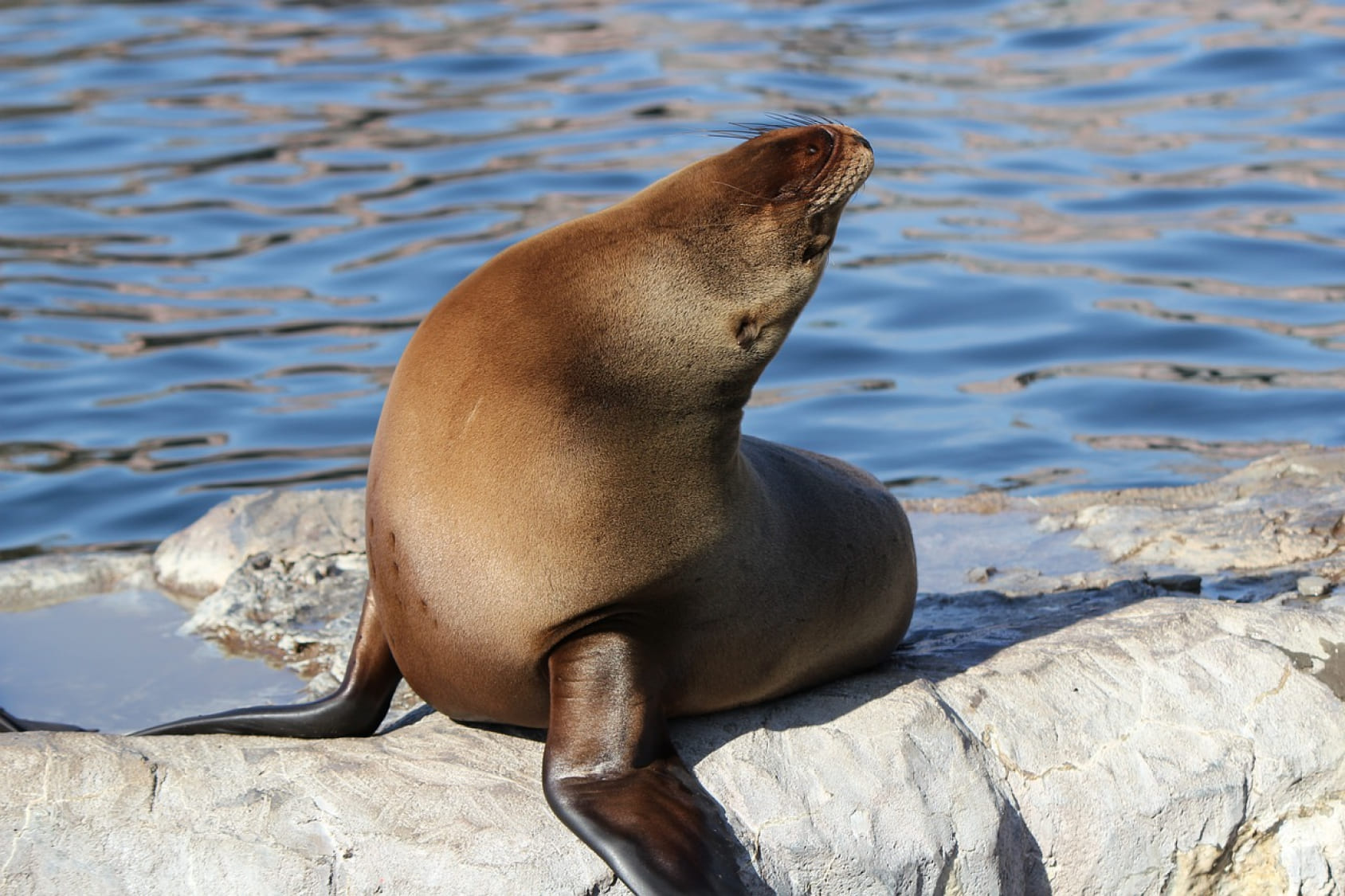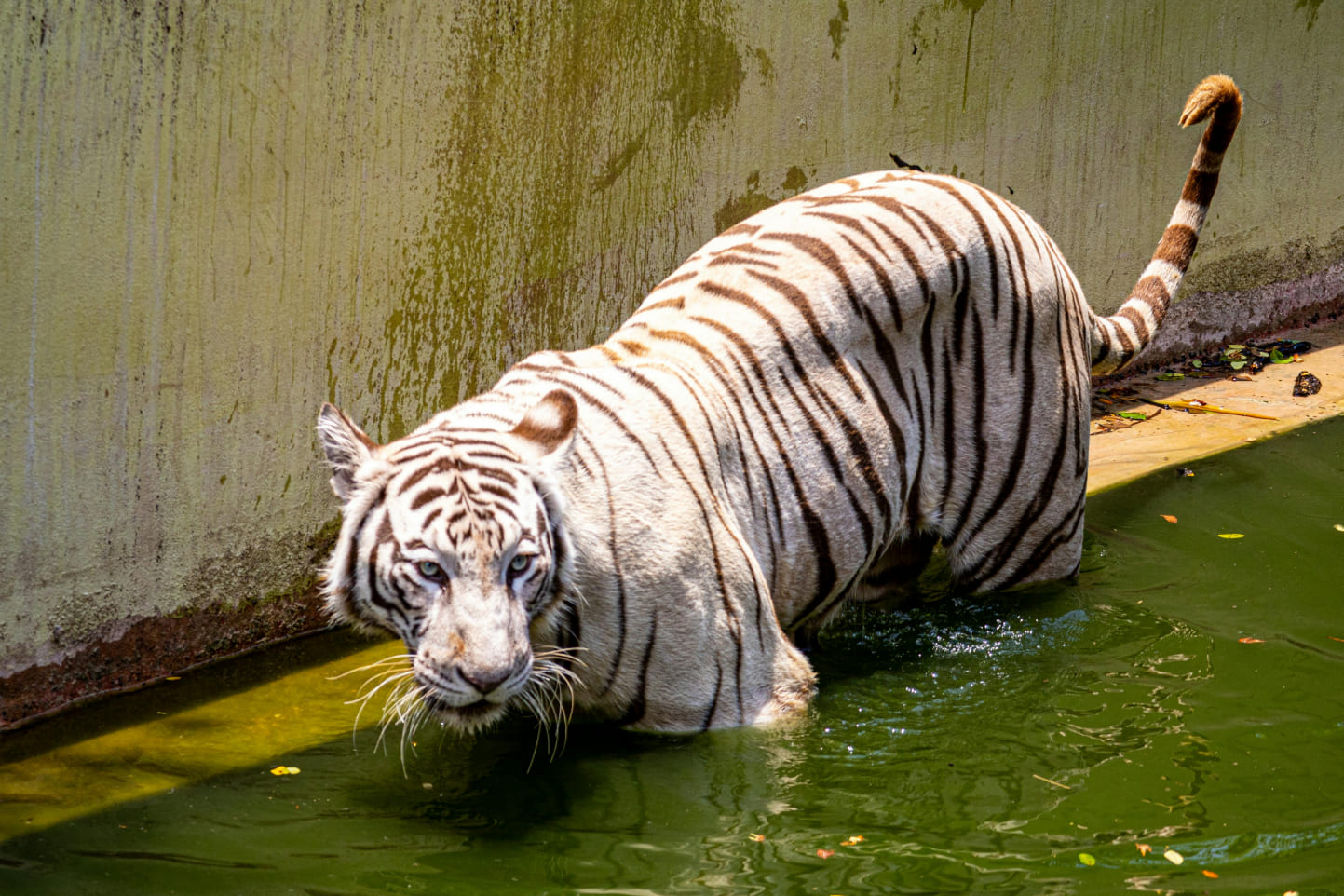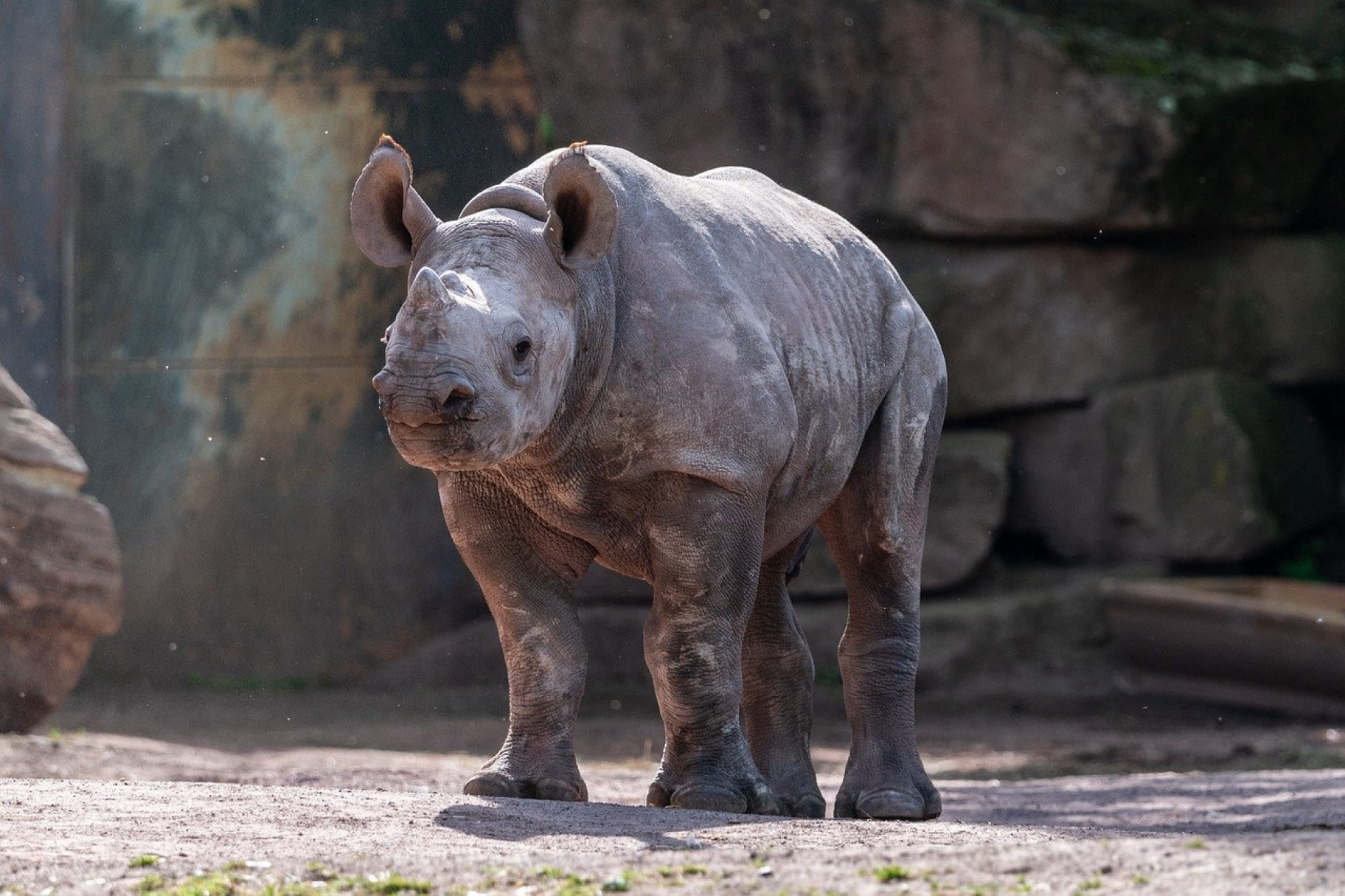
Tiger
The Apex Predator of the Jungle
The tiger is one of the most awe-inspiring animals on the planet, embodying power, elegance, and adaptability. With its distinctive orange coat and bold black stripes, no two tigers look alike—their unique patterns serve as perfect camouflage in their natural habitats, which range from dense jungles and mangroves to snowy mountains.
A solitary and territorial hunter, the tiger relies on its strength and stealth to ambush prey, often targeting deer, wild boar, and even buffalo. Equipped with sharp claws, powerful jaws, and exceptional night vision, the tiger is a top predator in its ecosystem, playing a vital role in maintaining the balance of herbivore populations.
Guardians of the Wild: Iconic Animals and Their Stories

Sea Lion: The Playful Acrobats of the Ocean
Sea lions are intelligent and social marine mammals, captivating audiences with their playful antics and remarkable agility both in water and on land. Found along coastlines and in open waters, sea lions rely on their powerful flippers for swimming at speeds of up to 25 miles per hour and for maneuvering on rocky shores or sandy beaches.

White Tiger: A Rare and Enigmatic Beauty
The white tiger is a rare and extraordinary variant of the Bengal tiger, known for its striking white coat with black or brown stripes and captivating blue eyes. This unique coloration is the result of a recessive gene and is extremely rare in the wild, where it poses a disadvantage for camouflage.

Rhinoceros: The Armored Giant of the Grasslands
Rhinoceroses, with their thick skin and impressive horns, are some of the most iconic and powerful animals in the wild. Found in both Africa and Asia, rhinos are herbivores that play a crucial role in shaping their ecosystems. By grazing on vegetation, they help maintain the balance of plant life and open up pathways for other species.
